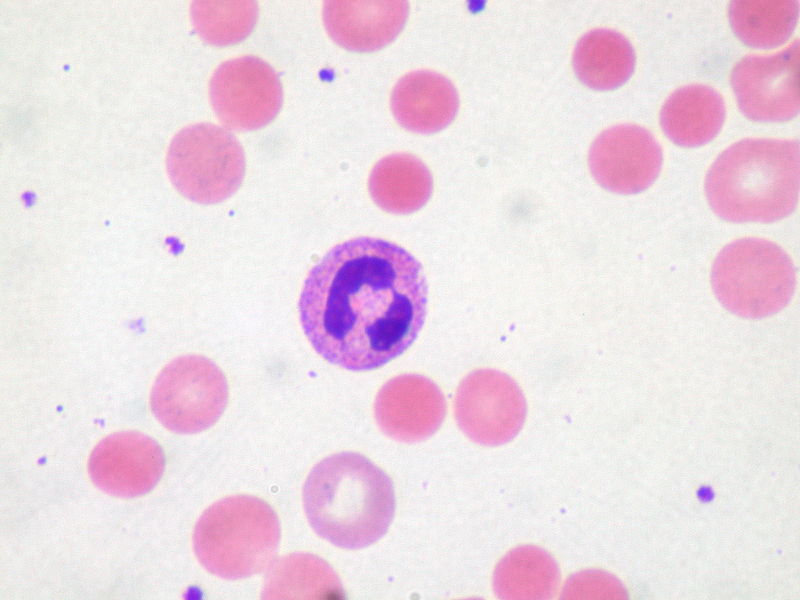Playlist
Show Playlist
Hide Playlist
Autoimmune Hemolytic Anemia (AIHA): Overview of Immune Hemolytic Anemias
-
Slides Autoimmune Hemolytic Anemia.pdf
-
Download Lecture Overview
00:01 Students often have a hard time with autoimmune hemolytic anemia only because they haven’t spent enough time with dealing with the immunology of couple of these immunoglobulins that we’ll take a look at. 00:12 So let’s, once and for all, bring absolute clarity to autoimmune hemolytic anemia. 00:20 To begin with, immune hemolytic anemia, same thing. 00:24 What’s going to end up happening here is that with IHA (immune hemolytic anemia) -- Well, there are 2 different types that we’ll take a look at. 00:33 Agglutination of RBCs in cold types is -- Well, by looking at this picture, it's rather difficult for you to figure out immediately. 00:42 However, with enough history, say the patient is suffering from mycoplasma pneumonia and then we will talk more about how the patient is developing cold. 00:51 So when we do immune hemolytic anemia, autoimmune hemolytic anemia, there are two types. 00:57 One will be warm, the other one will be cold. 01:00 And apart from that, most importantly, you need to figure out as to how to differentiate between the two, its associations. 01:08 The last time, we even brought up anything dealing with the immune hemolytic anemia was actually a differential of hereditary spherocytosis. 01:17 Do you remember that? Why did I bring anything up there? Well, do you remember what a hereditary spherocytic type of RBC looks like? A spherocyte. 01:26 do you remember the differential that I had given you? Good. 01:29 Warm type of autoimmune hemolytic anemia which we haven’t look at yet, but we shall. 01:36 And in hereditary spherocytosis, what was the test that we conducted in which it ruled out warm type of autoimmune hemolytic anemia? Good. 01:46 Coombs test. 01:48 Coombs test is negative, hereditary spherocytosis. 01:51 Coombs test is positive, you’re looking in the realm of autoimmune hemolytic anemia and that would be warm though.
About the Lecture
The lecture Autoimmune Hemolytic Anemia (AIHA): Overview of Immune Hemolytic Anemias by Carlo Raj, MD is from the course Hemolytic Anemia – Red Blood Cell Pathology (RBC).
Included Quiz Questions
Which of the following microorganisms is associated with cold autoimmune hemolytic anemia?
- Mycoplasma pneumoniae
- Mycobacterium tuberculosis
- Staphylococcus aureus
- Streptococcus pyogenes
- Chlamydia psittaci
Customer reviews
5,0 of 5 stars
| 5 Stars |
|
5 |
| 4 Stars |
|
0 |
| 3 Stars |
|
0 |
| 2 Stars |
|
0 |
| 1 Star |
|
0 |




